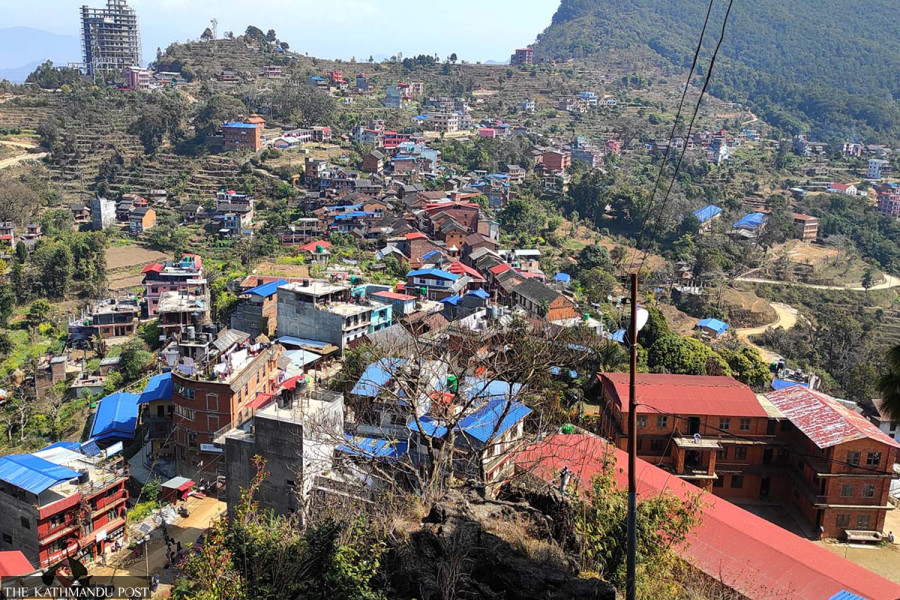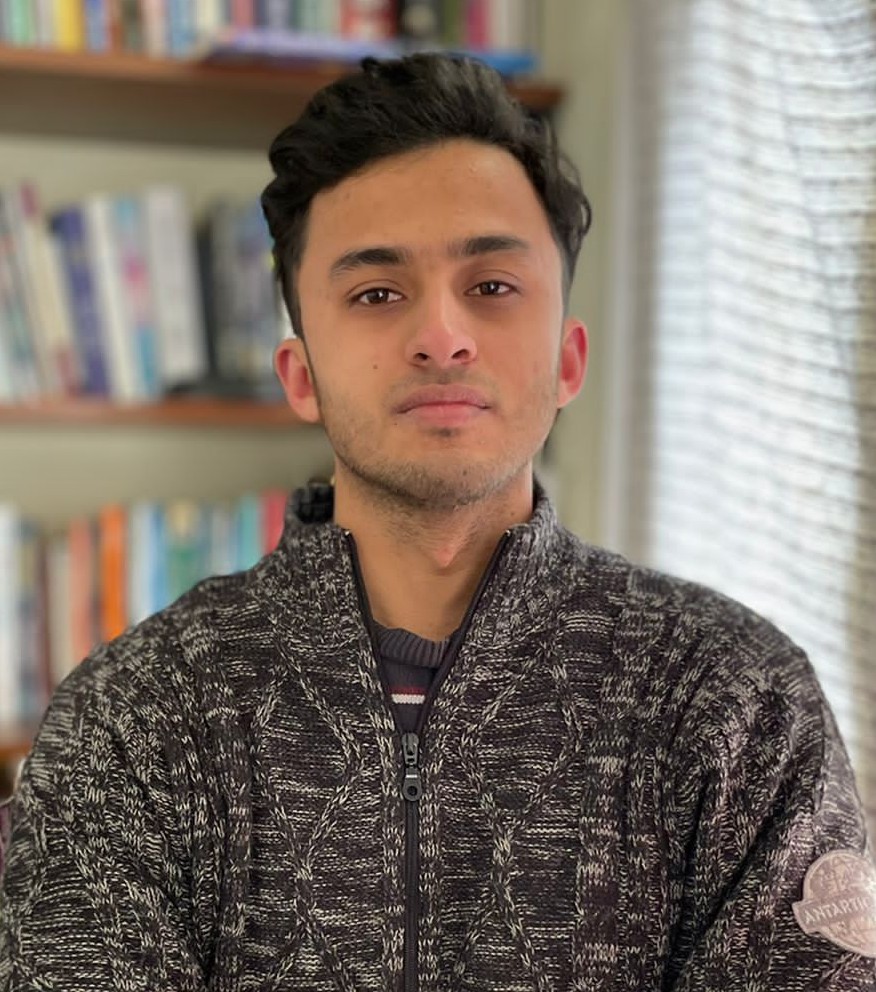Fiction Park
On the outskirts
Had this been in Kathmandu, I would have thought it was a weekend, mistaking the laid-back steps of country life for Saturday lethargy.
Sarans Pandey
I would say it was a Thursday afternoon. Or maybe it was Wednesday. Had this been in Kathmandu, I would have thought it was a weekend, mistaking the laid-back steps of country life for Saturday lethargy. The clear December sky was letting the sun breathe without the hindrance of clouds that had gone missing since the start of winter. And whatever cold remained untouched by the sun became more and more powerless as I briskly walked on. I had taken a bus which stopped for lunch at a place called Sano Bhanjyang, much to my dismay, because where I needed to get to was just one more kilometre away. People referred to Sano Bhanjyang as a small ‘bazaar’, and perhaps the term market makes for a scant translation. To be honest, even bazaar implies an Indian notion of a market and ‘bajar’ with a ‘j’ is what Sano Bhanjyang really was.
Like with every bajar, the place had a fruit shop showcasing rows of bright tangerines, marketed as local but of course, local meaning imported from China on local transport, and small restaurants that called themselves hotels, even though they wouldn’t offer any rooms and instead limited their services to ready to eat lunch and snacks. Outside the restaurants, there were lines of Yamaha fzs and Avengers, and depending on how many are parked at a time, the passersby decide which one to visit. It’s kind of like trip advisor reviews but only more updated and accurate. People entered and exited these restaurants, with toothpicks dangling from the edge of their mouths and the free serving of fennel seeds cusped in their palms. The purpose of the bajar was fairly straightforward, and no one spent any more time than what was necessary because, to the traveller a bajar is not meant to attract. It is there for a need, and once fulfilled, neither the bajar nor its passing visitors see the point of extending the courtship.
I departed the bajar and asked for directions from an old man. He was dressed in a white shirt faded by time, black shorts tainted by mud marks that served as evidence of his endeavours and slippers that kept his feet readily in contact with the earth he toiled on. Accompanying him were two cows who occasionally stray into the centre of the road, much to the ire of passing vehicles, before the old man shooed them back to the side. There was no sense of urgency in his gait, as you’d observe in a city passerby who is always charged and in a rush, from residence to work and from one work to another. And yet the deep wrinkles across the old man’s forehead and the calluses on his palms proclaimed loudly, without the use of any words, that he worked as hard, if not more, than those under bright city spotlights. Perhaps the only difference between him and those in Kathmandu was that in Kathmandu, a smile tends to be a reaction, an ephemeral flash of joy in an otherwise mechanical existence, whereas the old man’s smile was instead a revelation of a life that knew the purpose.
Surprisingly the place that I needed to visit was unremarkable; a property right on the slope and without a source of water, which my father always stressed was the prerequisite to buying land, and also without a view of the mountain, which was my prerequisite for buying land. Disappointed that almost three hours of my day had been wasted on a visit that bore no fruit, I trudged my way back up the dusty road that branched off from the main highway. I could feel my shirt getting drenched in sweat and every time a gentle breeze wafted by, the cool sensation, which I perhaps would have appreciated on a summer day served as an uncomfortable threat.
The bajar of Sano Bhanjyang reappeared in the distance and for a moment, I stopped and turned around to get a last proper look at the mountains that were visible again. I took out my phone but put it back immediately as what appeared on the screen, I felt, was a gross injustice to what was really in front of me. I started walking again but had to stop as an old red Maruti pulled up beside me. I thought the man was looking for directions, but to my surprise, he ended up asking if I wanted a lift.
I immediately said no, out of nothing but sheer instinct, and not because I didn’t want a lift but because I was unaccustomed to such generosity offered by a fellow Nepali. City life taught me a myriad of ways to say no but not one to say yes because the assumption always is that nothing good ever comes from a stranger. But more striking than the offer of the lift was the vehicle and the number plate that began with ‘Ba 2’ which, if you’re a resident of Nepal, should give you an idea of how old the car must have been. It wasn’t the first vehicle I saw that day. There were gigantic land cruisers, sleek Kia Sonets, well-polished Nexons and elegant Hyundais that drove by me. But it was an old Maruti and that too from the second lot, that ended up offering me a lift.
I smiled as the person drove away, carefully so as to avoid the pothole, which would have been problematic for the car’s low ground clearance. It was a deja vu moment of a different kind. I had been prompted to smile in a similar fashion the day I walked from Chabahil to Ratnapark and then to Sanepa. And I recall how, as the day went by and with neighbourhoods getting more and more affluent, I saw the concurrence of less and less beggars and more and more signboards of organisations pledging to help the poor. And that smile too had been prompted by a recollection of a dinner experience at a well to do hotel which at that moment had reminded me of how as the food became more and more expensive, it would have less and less portions. As I stepped into the bajar of Sano Bhanjyang, I saw the same old man with the same two cows. He smiled at me before entering the ‘hotel’. The cows moved to the centre of the road.




 17.8°C Kathmandu
17.8°C Kathmandu












